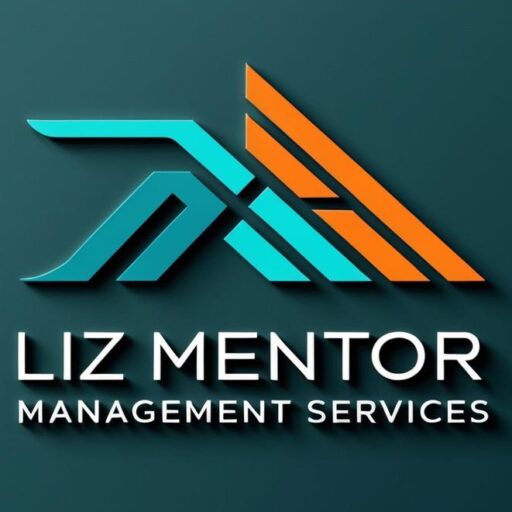How to Create a Business That Still Feels Like You When You Grow
You didn’t start your business by accident. You had a vision, a sense of purpose, and a standard you refused to compromise on. Maybe it was a way of working you wished existed in your industry. Maybe it was the kind of customer service you wished someone had given you. Or maybe it was simply a belief that business could be done differently, more honestly, and with more heart.
But then growth happened. Suddenly you weren’t just the founder; you were also a manager. You were hiring, delegating, and systemising. People started referring to your business as “we” instead of “you.” And with that growth came a quiet fear: will this still feel like me six months from now, or will my business start to feel like a corporate machine I never wanted?
This is a question almost every founder faces at some point. And the truth is, it’s not growth itself that makes businesses lose their soul — it’s growth without intention. When you scale without a clear sense of who you are, your business identity starts to erode. The good news? It doesn’t have to be that way. You can build a business that grows and evolves while still feeling like an authentic reflection of you.
Let’s explore how.
Get Clear on What “You” Actually Means
Before you can preserve your identity in growth, you have to define it. Otherwise, it’s like trying to protect a house without knowing its foundation.
Start by asking yourself a few grounding questions:
What values guide my decisions?
What kind of clients do I want to attract — and just as importantly, who do I want to repel?
What are my non-negotiables? What lines will I not cross, even if there’s money on the table?
These may seem like philosophical questions, but they become deeply practical when you’re hiring staff, creating processes, or deciding which opportunities to pursue. For example, if one of your core values is accessibility, then every product, service, or piece of content you create should reflect that. If your value is creativity over conformity, then your marketing shouldn’t start looking like everyone else’s just because you’re “scaling.”
Many founders skip this step, only to look back years later and feel disconnected from the business they built. Growth without intention doesn’t just create expansion — it creates erosion. That’s why it’s essential to write these principles down early. They’ll serve as your anchor when the pressure to “go corporate” kicks in.
Build Systems Without Stripping Away Soul
There’s a myth that systems kill creativity. In reality, systems are the very thing that allows creativity and personality to shine through consistently. The danger isn’t in having systems — it’s in building the wrong ones.
Think of your favourite local restaurant. The reason the food tastes the same every time isn’t because the chef micromanages every plate; it’s because there’s a system. But if that system stripped away all personality and care, it would feel like fast food. The same applies to your business.
When creating systems for growth, design them to protect your voice, not replace it. For example, instead of using a generic “thanks for contacting us” email, write a branded response infused with your personality. Instead of handing off your social media to an agency with no direction, give them guidelines, stories, and examples that sound like you.
Systems should save you time and keep your brand consistent, but they should never sterilise the business. If your process makes your communication sound robotic or your customer journey feel cold, it’s time to rework the system.
Hire for Vision, Not Just Skills
The fastest way for your business to stop feeling like you is to hire people who don’t share your values. Skills can be taught, but alignment can’t be forced.
When you start growing, it’s tempting to hire quickly just to get the workload off your plate. But every hire is an extension of your brand. If your team doesn’t believe in your mission, the culture will drift — sometimes faster than you realise.
Instead, hire slowly and intentionally. Look for people who don’t just want a paycheck but who actually care about the kind of business you’re building. For example, if your coaching business is rooted in empathy and accountability, you don’t want to hire someone who treats clients like transactions. If your agency is built on pushing creative boundaries, you don’t want a team member who prefers the safe and predictable path.
One founder I worked with ran a small marketing firm. She had a very people-first philosophy and built deep relationships with her clients. When she grew, she hired someone brilliant with technical skills but who dismissed clients’ emotional needs as “fluff.” Within six months, the tone of the company shifted — and not in a good way. When she replaced that hire with someone who genuinely valued relationships, the culture felt like hers again.
Growth multiplies your people’s influence. Make sure you hire people who amplify your vision, not erode it.
Do Regular Pulse Checks
Culture drift doesn’t happen overnight. It happens slowly, in little compromises. That’s why intentional “pulse checks” are crucial as you grow.
Every quarter, or whenever you make a major change — like a new hire, a new client contract, or a new system — pause and ask yourself:
Does this still feel like something I’m proud of?
Is this still aligned with why I started?
What’s starting to feel off, and what needs to shift back?
These pulse checks don’t just apply to the business at large; they apply to you personally. Founders often burn out because they don’t stop to ask, am I still working in my zone of genius, or am I drowning in tasks I shouldn’t be touching anymore?
One small business owner I know set a calendar reminder every 90 days titled “Would I still work here?” It sounds simple, but it kept her honest. If she couldn’t answer yes, she knew it was time to recalibrate.
Stay Present, Even When You Delegate
As your business grows, you will inevitably hand things over — marketing, operations, customer service, maybe even sales. Delegation is healthy and necessary. But delegation doesn’t mean disappearing.
Your voice and presence are still strategic assets. Customers want to feel connected to the person behind the brand, not just to faceless staff or automated systems. Even if you’re not involved in every daily detail, you can stay present in meaningful ways.
This might mean writing a monthly email to your community, posting the occasional behind-the-scenes update, or showing up at key client meetings. It might mean recording a welcome video for new customers or personally thanking long-term clients. These touches don’t take much time, but they remind people that the business still reflects you.
Think about brands you love that have scaled successfully. Often, the founder’s presence remains visible. Richard Branson still tells stories from his Virgin journey. Sara Blakely still shows up authentically in Spanx marketing. They don’t run every detail — but they stay connected to the essence.
Growth Without Losing Yourself Is About Intentional Design
When it comes down to it, keeping your business aligned with who you are isn’t about clinging to control or refusing to scale. It’s about intentional design.
It means defining your values before growth pressures you to compromise them.
It means building systems that protect your voice instead of sterilising it.
It means hiring people who believe in your mission, not just in their paychecks.
It means running pulse checks so culture drift doesn’t sneak up on you.
And it means staying visible enough that your business never loses its heartbeat — you.
Scaling doesn’t have to feel like selling out. In fact, the businesses that last are often the ones that stay most authentic. Customers are drawn to companies that feel human, not mechanical.
Final Thought: Grow on Purpose, Not on Autopilot
You don’t have to become someone else to become successful. You don’t have to trade your personality for profit. You can grow a business that feels right, serves well, and scales sustainably — without losing the identity that made it worth building in the first place.
The key is to grow on purpose, not on autopilot. Because at the end of the day, your business isn’t just what you sell or the systems you build. It’s the reflection of the person who started it. And if you protect that essence, no amount of growth can take it away.



